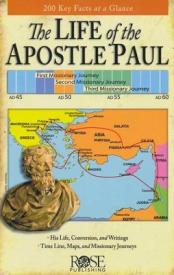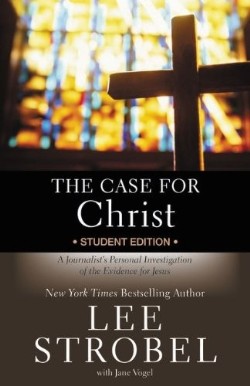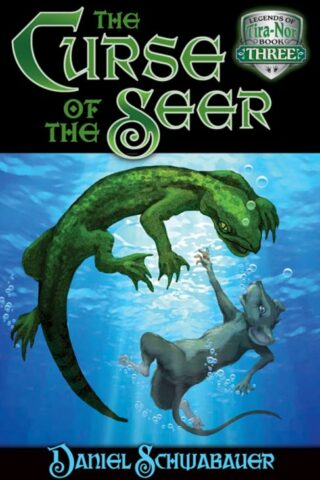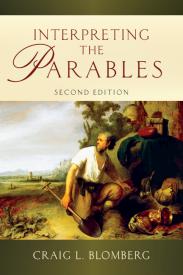Interpreting The Parables (Revised)
$46.99
Abbreviations
Preface
1. Introduction
1.1 The Previous Scholarly Consensus
1.2 The Sizable Minority Report
1.3 Newest Developments
1.4 The Scope And Outline Of This Book
Part One: Methods & Controversies In Interpreting The Parables
2. Parable & Allegory
2.1 The Current Debate: Two Main Approaches
2.1.1 Parable Vs. Allegory
2.1.2 Parable As Allegory
2.2 Evaluating The Debate
2.2.1 Contemporary Literary Criticism
2.2.2 The Rabbinic Parables
2.3 Conclusions
3. Form Criticism & The Parables
3.1 Classical Form Criticism
3.1.1 The Method
3.1.2 Critique
3.2 Hypotheses Of The Guarded Tradition
3.2.1 Memorizing Jesus Teachings
3.2.2 New Insights Into Oral Folklore And Social Memory
3.3 Conclusions
4. Redaction Criticism Of The Parables
4.1 Positive Contributions
4.1.1 The Illustration Of Distinctive Themes
4.1.2 The Significance Of The Larger Contexts
4.2 Invalid Allegations
4.2.1 Misleading Parallels
4.2.2 Dictional Analysis
4.2.3 The Theology-History Dichotomy
4.2.4 Prophecy After The Event
4.2.5 Characterizing The Parables In Different Synoptic Sources
4.2.6 Mistaking Stylistic For Theological Redaction
4.2.7 Misrepresenting The Theology Of An Evangelist
4.3 Conclusions
5. New Literary & Hermeneutical Methods
5.1 The New Hermeneutic
5.1.1 The New View Of Metaphor
5.1.2 A Critique Of The New View Of Metaphor
5.2 Structuralism
5.2.1 The Ideology
5.2.2 The Method
5.2.3 Surface Structures
5.3 Poststructuralism/Postmodernism
5.3.1 Deconstruction
5.3.2 Reader-Response Criticism
5.4 Other Literary Approaches [au: FYI, Edited To Match Text.]
5.5 Conclusions
Conclusions To Part One
Part Two: The Meaning & Significance Of Individual Parables
6. Simple Three-Point Parables
6.1 The Prodigal Son (Lk 15:11-32)
6.2 The Lost Sheep And Lost Coin (Lk 15:4-10; Cf. Mt 18:12-14)
6.3 The Two Debtors (Lk 7:41-43)
6.4 The Two Sons (Mt 21:28-32)
6.5 Faithful And Unfaithful Servants (Lk 12:42-48; Mt 24:45-51)
6.6 The Ten Virgins (Mt 25:1-13; Cf. Lk 13:24-30)
6.7 The Wheat And The Tares (Mt 13:24-30, 36-43)
6.8 The Dragnet (Mt 13:47-50)
6.9 The Rich Man And Lazarus (Lk 16:19-31)
6.10 The Children In The Marketplace (Mt 11:16-19; Lk 7:31-35)
6.11 Conclusions
7. Complex Three-Point Parables
7.1 The Talents (Mt 25:14-30; Cf. Lk 19:12-27)
7.2 The Laborers In The Vineyard (Mt 20:1-16)
7.3 The Sower (Mk 4:3-9, 13-20 Pars.)
7.4 The Good Samarita
Additional Info
In the last century, more studies of the parables were produced than for any other section of comparable length in the Bible. The problem is that few students of the Bible have access to these studies. In this substantially new and expanded edition, Craig Blomberg surveys and evaluates the contemporary critical approaches to the parables–including those that have emerged in the twenty years since the first edition was published. The classic works of C. H. Dodd and Joachim Jeremias set the direction for nearly all further parable studies in this century. Embodied in both scholars’ approaches are at least two assumptions that, for the most part, have gone unchallenged: (1) Parables make one and only one main point. (2) Parables are not allegories. But can these assumptions be supported by the evidence? Challenging this view and making his own important new contribution to parable studies, Blomberg argues that within proper definitions and limits, the parables are in fact best seen as allegories. In support of this “minority report” concerning parable interpretation, Blomberg not only sets forth theoretical considerations but devotes attention to all the major parables, providing brief interpretations that highlight the insights to be gained from his distinctive method.
in stock within 3-5 days of online purchase
SKU (ISBN): 9780830839674
ISBN10: 0830839674
Craig Blomberg
Binding: Trade Paper
Published: September 2012
Publisher: InterVarsity Press
Print On Demand Product
Related products
-
Resilient Study Guide Plus Streaming Video (Student/Study Guide)
$21.99The human soul has a built-in yearning for joy and beauty and all good things. But that craving for life has taken a real beating in recent years. Between false promises of ease and comfort on one side and the sheer trauma of global disease and disasters on the other, people today are facing a shortage of peace, happiness and strength.
In the Resilient video Bible study, bestselling author John Eldredge provides skills and tools to help participants strengthen their hearts and souls–and reveals a path toward genuine recovery and resilience provided by Jesus himself. Drawing on wisdom from scripture and Christian tradition, and illustrated throughout with powerful true stories of grit and survival, Resilient will help participants:
*Recover from the trauma of recent world events and tap into the supernatural graces that God promises
*Learn to be patient with themselves–genuine recovery from spiritual and emotional trauma takes time and intentionality
*Create a plan–because resilience and victory aren’t going to come with a swipe on a home screen
*Discover deep wells of freedom and strength through Christ, who lives within us
Thriving requires a resilient soul. This study will help participants find the resilience they need when the world has gone mad–and discover in Jesus himself the strength that prevails.
This study guide includes:
*Individual access to streaming video sessions
*A guide to best practices for leading a group
*Video notes and a comprehensive structure for group discussion time
*Personal study for deeper reflection between sessionsDesigned for use with Resilient Video Study, (sold separately).
Add to cartin stock within 3-5 days of online purchase
-
Contagious Faith : Discover Your Natural Style For Sharing Jesus With Other
$18.99As a follower of Christ you know–at least deep down–that you were created for more than just loving your family, building your career, or attending weekly church services. We were made to share God’s love with others in ways that can impact their lives and redirect their eternities.
But few of us are naturally comfortable doing this. We wrestle with internal fears, a lack of preparation, and the sense that reaching out to others might force us to act like someone we’re not. We want to encourage people spiritually, but we don’t want to get weird or overbearing in the process. We need to be equipped to talk to people about Jesus in ways that fit our God-given personalities, and we would benefit greatly from an infusion of fresh inspiration and practical ideas.
In Contagious Faith, bestselling author and teacher Mark Mittelberg introduces you to the five Contagious Faith Styles–Friendship-Building, Selfless-Serving, Story-Sharing, Reason-Giving, and Truth-Telling–and helps you discover which of these approaches (or combination of them) will enable you to naturally share your faith in Jesus with the people around you. He also explains in a down-to-earth fashion several key skills that will help you communicate your faith in infectious ways, illustrating his message with real-life accounts of ordinary believers who applied these principles for extraordinary impact.
Mark Mittelberg was the primary author of the celebrated Becoming a Contagious Christian course, through which he helped nearly two million people around the world learn to communicate their faith. Now, with clear teaching, compelling stories, and inspiring motivation, his new Contagious Faith book will help you share the good news of Jesus effectively–even in our increasingly resistant culture.
Add to cartin stock within 3-5 days of online purchase
-
Screwtape Letters
$17.99Wormwood, a demon apprentice, must secure the damnation of a young man who’s just become a Christian. He seeks the advice of an experienced devil, his uncle Screwtape. Their correspondence offers invaluable—and often humorous—insights on temptation, pride, and the ultimate victory of faith over evil forces. Paperback with French flaps and deckled page edges.
Add to cart1 in stock (additional units can be purchased)

 Chosen Season Four (Blu-ray)
Chosen Season Four (Blu-ray)
 Yours Not Hers
Yours Not Hers
 Speak Your Mind
Speak Your Mind
 Salmos De Adoracion - (Spanish)
Salmos De Adoracion - (Spanish)
 Hosea Bible Study Book With Video Access (Student/Study Guide)
Hosea Bible Study Book With Video Access (Student/Study Guide)
 If I Run
If I Run
 Boundaries : How To Set Them How To Keep Them
Boundaries : How To Set Them How To Keep Them
 Life Of The Apostle Paul Pamphlet
Life Of The Apostle Paul Pamphlet
 To Be A Christian
To Be A Christian















Reviews
There are no reviews yet.